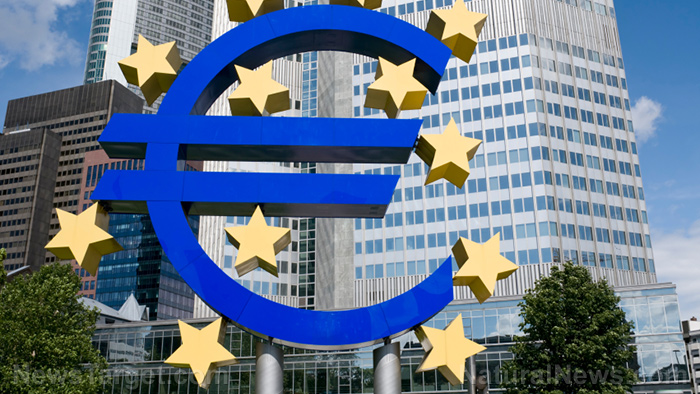 Parler
Parler Gab
Gab
Eurozone to head into a recession before the year ends
EU Economy Commissioner Paolo Gentiloni warned that the economic situation in the Eurozone has deteriorated to the point that the continent could experience a recession before the year ends. The European Commission, the EU's main executive body, also revised its year-end inflation from July, predicting a 2022 inflation rate of 9.3 percent in the EU and 8.5 percent in the Eurozone. The previous prediction projected that inflation would reach an average of 7.6 percent in the Eurozone and 8.3 percent in the EU as a whole. The commission also placed the blame on the inflation crisis and the coming recession on Russia's special military operation in Ukraine. "The EU is among the most exposed advanced economies [to high prices], due to its geographical proximity to the war and heavy reliance on gas imports from Russia," read a statement from the European Commission. "The energy crisis is eroding households' purchasing power and weighing on production." The commission also predicted that, while certain prices may come down slightly in 2023, inflation is still predicted to be at 6.1 percent in the Eurozone and seven percent for the EU as a whole. Inflation isn't expected to come down until 2024, with the commission's current prediction forecasting a 2.6 inflation rate for the Eurozone and three percent for the EU as a whole. Average inflation for 2022 is highest among Baltic nations, with this disparity blamed on their proximity to Russia. Estonia's average inflation rate is 19.3 percent, Lithuania's is 18.9 percent and Latvia's is 16.9 percent. Learn more about the inflation situation in Europe and the rest of the world at Bubble.news. Watch this episode of "Liberty and Finance" discussing the potential banking meltdown coming from the Eurozone. This video is from the Liberty and Finance channel on Brighteon.com.More related stories:
Head of France's main electricity grid operator warns energy shortages will force nation to ration electricity this winter. Poland's inflation reaches all-time high in October, but economists warn the worst is yet to come. Collapse incoming: Eurozone inflation jumps to record-high 10.7%. Energy crisis forces Austria's only domestic salt manufacturer to cut production by 20%. European Central Bank head warns of darkening economic outlook for the continent, raising recession fears. Sources include: Yahoo.com CNBC.com EuroNews.com Brighteon.comIs a home price collapse on the way? Some experts say yes
By Ethan Huff // Share
BRICS nations moving rapidly to circumvent the US dollar as the World Reserve Currency
By Lance D Johnson // Share
Fed chair says China’s zero-COVID policy damages global supply chain
By Arsenio Toledo // Share
Tech layoffs nearing levels not seen since the Great Recession
By Arsenio Toledo // Share
IMF chief wants the Federal Reserve to keep raising interest rates
By Arsenio Toledo // Share
Governments continue to obscure COVID-19 vaccine data amid rising concerns over excess deaths
By patricklewis // Share
Tech giant Microsoft backs EXTINCTION with its support of carbon capture programs
By ramontomeydw // Share
Germany to resume arms exports to Israel despite repeated ceasefire violations
By isabelle // Share










